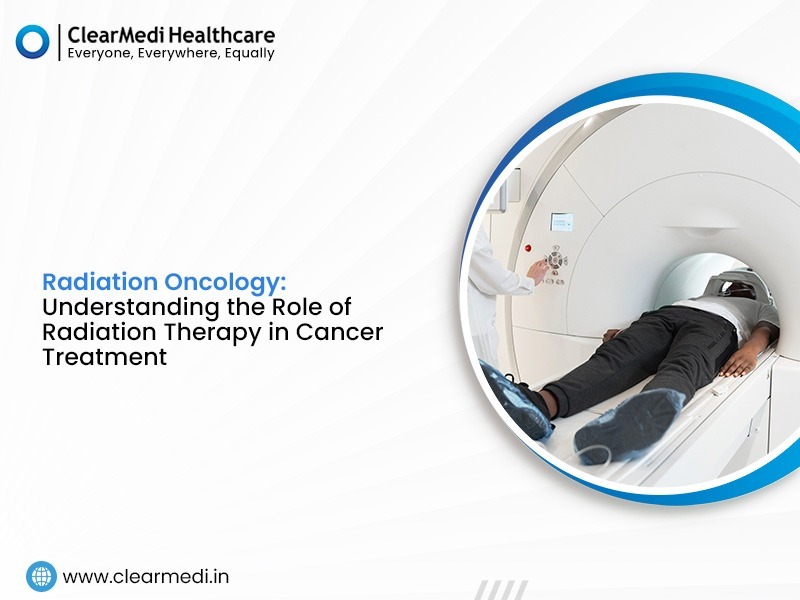The 5-Minute Rule for Arogyajivan Medical Tourism For Oncology
The 5-Minute Rule for Arogyajivan Medical Tourism For Oncology
Blog Article
Examine This Report about Arogyajivan Medical Tourism For Oncology
Table of ContentsRumored Buzz on Arogyajivan Medical Tourism For OncologySome Of Arogyajivan Medical Tourism For OncologyArogyajivan Medical Tourism For Oncology Can Be Fun For EveryoneThe Best Guide To Arogyajivan Medical Tourism For OncologyTop Guidelines Of Arogyajivan Medical Tourism For OncologyThe Only Guide for Arogyajivan Medical Tourism For OncologyThe Arogyajivan Medical Tourism For Oncology Diaries
If you have cancer cells, your health care copyright will advise one or even more ways to treat the condition. Below is an introduction of the different therapies for cancer cells and just how they work.Cancer cells expand and split faster than regular cells in the body. Since radiation is most hazardous to promptly expanding cells, radiation therapy damages cancer cells a lot more than normal cells. It uses compounds made by the body or in a lab to help the immune system work harder or in an extra targeted method to battle cancer.
Some have toxic substances or radioactive compounds connected to them. Immunotherapy is given by IV. Hormone treatment is utilized to deal with cancers that are sustained by hormones, such as breast, prostate, and ovarian cancers cells. It utilizes surgical treatment, or medications to stop or obstruct the body's all-natural hormonal agents. This helps reduce the development of cancer cells.
Slim fibers at the end of the tube guide the light at the cancer cells. Lasers are additionally used on the skin. Lasers are frequently utilized with other sorts of cancer cells treatment such as radiation and radiation treatment. In photodynamic therapy, an individual gets a shot of a medication that is sensitive to a special kind of light.
The Definitive Guide for Arogyajivan Medical Tourism For Oncology

An oncologist is a cancer doctor. Marketing on our site aids support our objective. A visit to an oncologist gives you a chance to speak with a specialist who understands what you're going with.
They're ready to help, and they'll walk with you every step of the means. Oncologists can: Run examines to diagnose cancerOffer a consultation on a previous diagnosisIdentify therapy optionsDiscuss each choice's benefits and side effectsOversee cancer cells treatmentManage post-treatment treatment Seeing an oncologist doesn't necessarily mean you have cancer cells. An oncologist obtains involved if you have signs that may be cancer.
What Does Arogyajivan Medical Tourism For Oncology Mean?
Numerous cancers cells are much more treatable in the early stages. Cancer cells is an intricate disease.
A lot of medical oncologists also focus on hematology (the medical diagnosis and treatment of blood conditions and blood cancers). These doctor make use of radiation therapy to deal with cancer cells. Radiation can shrink tumors before surgery or eliminate continuing to be cancer cells after surgical treatment. You could have radiation as a stand-alone treatment or in mix with various other treatments.
The smart Trick of Arogyajivan Medical Tourism For Oncology That Nobody is Talking About
Do I have cancer cells? The length of time have I had it? What will my life look like currently? If these are the concerns competing with your mind, you're not article source alone. Your oncologist is below to aid you navigate these feelings. During your very first browse through, your oncologist will certainly: Ask you to describe your symptoms in detailDo a checkupReview your clinical documents, consisting of household history and any kind of previous or existing health and wellness conditionsRun any kind of necessary tests (like imaging tests or lab work) for more information about go to this site your symptomsDetermine whether you need a biopsyOnce your oncologist gathers the information they require, they'll: Talk about the results of your testsSend their findings to the doctor who referred youTell you whether you have cancer cells and if so, what kindTalk to you concerning various treatment optionsListen to your issues and anxietiesGive you sources that can offer assistance and added informationYour initially oncology see might use up to 3 hours.
Oncology is the study of cancer. Experts trained in oncology provide care for individuals that are at danger for cancer cells, being treated for cancer cells, and living with cancer after treatment.

9 Simple Techniques For Arogyajivan Medical Tourism For Oncology
treat cancer in kids and teens. Some kinds of cancer take place most typically in these younger age. When these sorts of cancer cells periodically happen in adults, those grown-up individuals might choose to deal with a pediatric oncologist. treat cancers cells inside the breast location, consisting of the lungs and esophagus. ArogyaJivan Medical Tourism for Oncology. deal with cancers in the genitourinary system, such as the bladder, kidneys, penis, prostate gland, and testicles.

In some cases when cancer cells is suspected however not identified, an oncologist may likewise be involved. Several people will certainly proceed seeing their oncologist for follow-up appointments to check for signs of cancer cells coming back and to take care of any side impacts from therapy.
Indicators on Arogyajivan Medical Tourism For Oncology You Need To Know
If you have a cancer medical diagnosis and are weighing your treatment options, take into consideration joining a professional trial. They might appear intimidating at first, clinical trials can be extremely advantageous no matter what type or phase of cancer you have. Benjamin Levy, M.D., professional director of the Johns Hopkins Kimmel Cancer Cells Center at Sibley Memorial Hospital and a lung cancer scientist, describes some of the factors to sign up with a clinical test.
Report this page